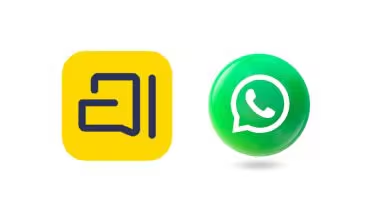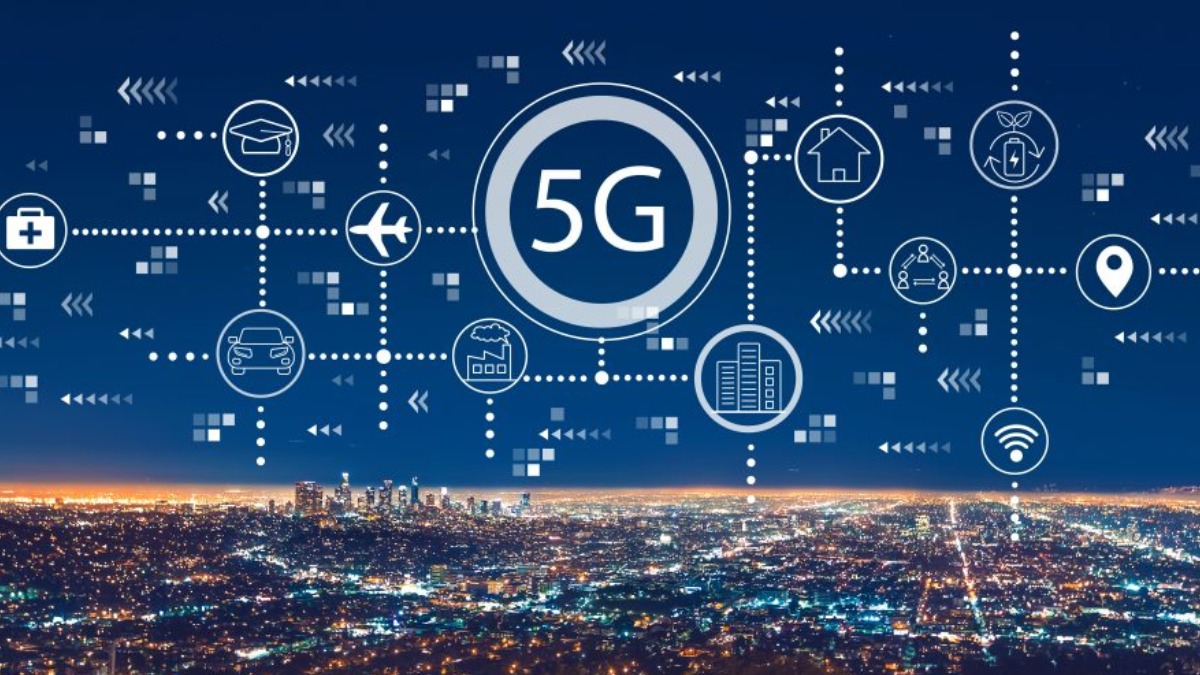WhatsApp vs Arattai : In the fast-paced world of instant messaging, WhatsApp has long been the undisputed king, with over 3 billion users globally and more than 500 million in India alone. However, a new player, Arattai—meaning “casual chat” in Tamil—is making waves as a homegrown alternative. Launched in 2021 by India’s Zoho Corporation, Arattai has surged to over 1 million downloads by September 2025, fueled by endorsements from Indian ministers like Dharmendra Pradhan and Ashwini Vaishnaw. Topping the Apple App Store and climbing Google Play’s ranks, Arattai is positioning itself as a privacy-focused, lightweight, and Made in India app tailored for India’s diverse users. But can it challenge WhatsApp’s dominance? This blog compares WhatsApp vs. Arattai across key features, exploring why users might consider switching and what each app brings to the table.
What Are WhatsApp and Arattai?
- Owner: Meta, a US-based tech giant behind Facebook and Instagram.
- Launched: 2009
- User Base: Over 3 billion globally, with 500M+ in India, making it the go-to for personal and business communication.
- Positioning: A global, feature-rich messaging platform with seamless integration into Meta’s ecosystem.
Arattai
- Owner: Zoho Corporation, an Indian software company known for privacy-first enterprise solutions.
- Launched: 2021
- User Base: Over 1 million downloads in India, with signups exploding from 3,000 to 350,000 in days during recent campaigns.
- Positioning: A Made in India alternative optimized for low-end devices, slow networks, and regional languages, with a strong focus on data sovereignty and no ad monetization.

Why Compare WhatsApp and Arattai?
WhatsApp vs Arattai : India’s messaging landscape is at a crossroads. WhatsApp’s universal adoption makes it hard to beat, but its ties to Meta’s ecosystem and global servers raise privacy concerns. Meanwhile, Arattai taps into India’s push for digital self-reliance (Atmanirbhar Bharat), offering a lightweight, locally developed app that resonates with users prioritizing data privacy and accessibility. This comparison will help you decide which app suits your needs in 2025.
Feature-by-Feature Comparison: WhatsApp vs Arattai
| Feature | Arattai | |
| Core Messaging | Text, voice notes, media (photos, videos, documents up to 2GB) | Text, voice notes, media (photos, videos, documents) |
| Calls | Audio and video calls, end-to-end encrypted | Audio and video calls, end-to-end encrypted |
| Group Chats | Up to 1,024 members; Communities for larger groups | Up to 1,000 members |
| Broadcast/Channels | WhatsApp Channels for one-way updates | Dedicated Channels for broadcasts |
| Stories | Status updates (24-hour ephemeral content) | 24-hour ephemeral stories |
| Meetings | Up to 32 participants via WhatsApp calls | Up to 250 participants; instant and scheduled meetings |
| Encryption | End-to-end encryption for all messages, calls, and media | End-to-end encryption for calls; messages in “secret chat” mode (full E2E in development) |
| Data Storage | Global servers; linked to Meta’s ecosystem | India-only servers (Mumbai, Delhi, Chennai); no data monetization |
| Language Support | 100+ languages, including Hindi, Tamil, Telugu, etc. | Strong focus on Indian regional languages; multilingual support |
| Performance | Smooth on mid-to-high-end devices; lags on low-end phones or 2G/3G | Lightweight; optimized for low-end devices and slow networks (2G/3G) |
| Additional Features | Business API, payments (select countries), Google Drive/iCloud backups | Username-based chats, WhatsApp chat/group import, Android TV app |
| Privacy Focus | Strong encryption but tied to Meta; past privacy controversies | Ad-free, no data sharing; interoperable protocols in development |
| Availability | iOS, Android, Desktop, Web | iOS, Android (including TV); global expansion underway |
| Monetization | Free for users; revenue via business tools | Free; ad-free, no data exploitation |

Why Replace WhatsApp with Arattai? Key Reasons
1. Data Sovereignty and Privacy
- WhatsApp’s Drawbacks:
- Meta’s Ecosystem: WhatsApp’s data is stored on global servers, and its integration with Meta’s ad-driven platforms (Facebook, Instagram) raises concerns about metadata usage (e.g., contacts, usage patterns), despite end-to-end encryption.
- Privacy Controversies: The 2021 privacy policy update sparked outrage in India over potential data sharing with Meta’s broader ecosystem, eroding trust among privacy-conscious users.
- Regulatory Scrutiny: India’s data localization laws (e.g., Personal Data Protection Bill) push for local storage, which WhatsApp only partially addresses.
- Arattai’s Advantages:
- India-Centric Storage: Data is stored on servers in Mumbai, Delhi, and Chennai, aligning with data sovereignty goals and reducing exposure to foreign regulations.
- No Data Monetization: Zoho’s ad-free model ensures user data isn’t exploited, a stark contrast to Meta’s business model.
- Username-Based Chats: Users can communicate without sharing phone numbers, enhancing privacy—a feature WhatsApp lacks.
Why Switch?: WhatsApp vs Arattai – If you’re wary of Meta’s data practices or prioritize data sovereignty, Arattai’s India-first approach and privacy focus make it a compelling alternative.
2. Optimized for India’s Diverse Users
- WhatsApp’s Drawbacks:
- Resource-Heavy: WhatsApp’s feature-rich app can be slow on low-end smartphones or 2G/3G networks, common in rural India.
- Data and Battery Drain: Media-heavy features and background processes consume significant resources, a challenge for users with limited data plans or budget devices.
- Urban-Centric Design: While it supports Indian languages, WhatsApp’s design prioritizes high-speed internet users, leaving rural users with suboptimal experiences.
- Arattai’s Advantages:
- Lightweight Performance: Built for low-end devices and slow networks (2G/3G), Arattai ensures smooth operation in semi-urban and rural areas.
- Regional Language Support: Strong emphasis on languages like Tamil, Telugu, and Hindi makes it accessible to non-English speakers, a key demographic in India.
- Low Data Usage: Optimized to minimize data consumption, saving costs for users on limited plans.
Why Switch?: If you use a budget phone, live in an area with poor connectivity, or prefer an app tailored for India’s linguistic diversity, Arattai is a better fit.
3. Innovative Features for Indian Users
- WhatsApp’s Drawbacks:
- Feature Bloat: Features like Channels, payments, and Communities can overwhelm users seeking simple messaging.
- Limited Meeting Capacity: Video calls are capped at 32 participants, insufficient for larger groups.
- Phone Number Dependency: Requiring a phone number for registration and chats limits privacy.
- Arattai’s Advantages:
- WhatsApp Chat Import: Seamlessly transfer chats and groups from WhatsApp, easing the transition.
- Large Meetings: Supports up to 250 participants for instant or scheduled calls, ideal for community or professional use.
- Android TV App: Unique support for Android TV enables messaging on shared screens, catering to Indian households.
- Interoperability Plans: Zoho’s work with iSPIRT (UPI’s creators) on open messaging protocols could enable cross-app communication, reducing platform lock-in.
Why Switch?: WhatsApp vs Arattai – Arattai’s user-friendly features like chat imports and large meetings cater to India-specific needs, while its interoperability vision could disrupt messaging monopolies.

4. Made in India and Government Support
- WhatsApp’s Drawbacks:
- Foreign Ownership: As a Meta product, WhatsApp faces skepticism in India’s push for Atmanirbhar Bharat (self-reliant India).
- Limited Local Focus: Its global design doesn’t fully address India’s unique socio-economic context.
- Arattai’s Advantages:
- Government Backing: Endorsements from Indian ministers boost Arattai’s credibility as a national alternative.
- Zoho’s Reputation: Developed entirely in India without reliance on AWS/Azure, Zoho’s track record adds trust.
- Cultural Resonance: The name “Arattai” and focus on regional languages align with India’s cultural diversity.
Why Switch?: WhatsApp vs Arattai – If you support local innovation or India’s self-reliance movement, Arattai’s Made in India credentials make it a strong choice.
5. Breaking Big Tech’s Monopoly
- WhatsApp’s Drawbacks:
- Network Effects: WhatsApp’s dominance creates a lock-in effect—everyone uses it because everyone else does, stifling competition.
- Meta Integration: Ties to Facebook/Instagram can feel intrusive for users wanting a standalone app.
- Arattai’s Advantages:
- Competitive Alternative: Backed by Zoho and government support, Arattai challenges WhatsApp’s monopoly in India.
- Standalone Focus: No ties to a broader social media ecosystem, offering a cleaner experience.
Why Switch?: WhatsApp vs Arattai : Choosing Arattai supports a competitive tech landscape, reducing reliance on WhatsApp’s dominance.
Challenges to Replacing WhatsApp
WhatsApp vs Arattai : Despite its strengths, Arattai faces hurdles:
- Incomplete Encryption: Only calls are end-to-end encrypted; messages rely on a “secret chat” mode, with full encryption still in development (a major drawback for privacy hawks).
- Scaling Issues: Recent signup surges caused OTP delays and sync problems, though Zoho is addressing these.
- Smaller User Base: With just 1 million users, Arattai lacks WhatsApp’s network effects, making it harder to convince friends or groups to switch.
Can Arattai Replace WhatsApp?
WhatsApp vs Arattai : Arattai’s rise echoes UPI’s disruption of payment giants like Visa and Mastercard in India. Its lightweight design, data sovereignty, and innovative features position it as a strong contender, especially for rural and semi-urban users. Zoho’s interoperable protocol plans could further level the playing field. However, WhatsApp’s universal adoption, full end-to-end encryption, and mature ecosystem make it hard to dethrone in 2025. Arattai could capture 100M+ users in 2–3 years if it delivers full encryption and scales smoothly, but for now, it’s a promising alternative rather than a full replacement.

Who Should Use Each App?
- Stick with WhatsApp if:
- You need a globally accepted app with a massive user base.
- End-to-end encryption for all communications is critical.
- You rely on features like payments or business APIs.
- You’re comfortable with Meta’s ecosystem.
- Switch to Arattai if:
- You prioritize data sovereignty and an ad-free experience.
- You use low-end devices or slow networks (2G/3G).
- You value features like chat imports, large meetings, or Indian language support.
- You support Made in India tech and want to try a local alternative.
How to Get Started
- WhatsApp: Free on iOS, Android, Desktop, and Web. Download from the Apple App Store or Google Play.
- Arattai: Free on iOS and Android (including Android TV). Available on the App Store and Google Play.
Also Read This : Goodbye Google Chrome? Zoho Launches Ulaa Browser as India’s Better Alternative
WhatsApp vs Arattai : WhatsApp remains the gold standard for messaging due to its reliability, encryption, and universal reach. However, Arattai’s privacy-first, Made in India approach, combined with its lightweight design and innovative features, makes it a strong contender for users seeking an alternative. As Zoho addresses encryption gaps and scaling challenges, Arattai could reshape India’s messaging landscape, much like UPI transformed payments. If you’re curious, download Arattai and give it a try—it’s free, and you can even import your WhatsApp chats to test the waters.




